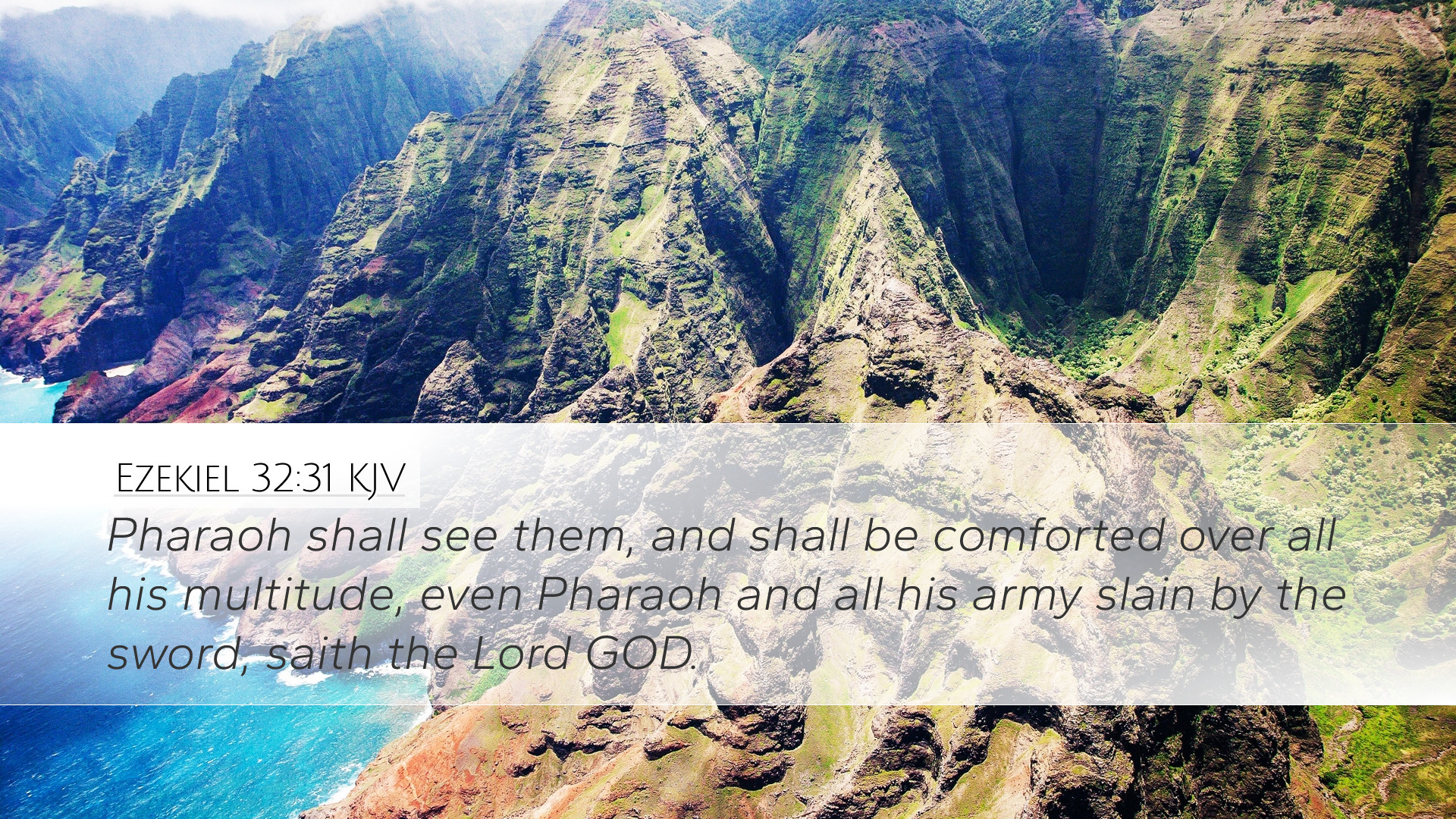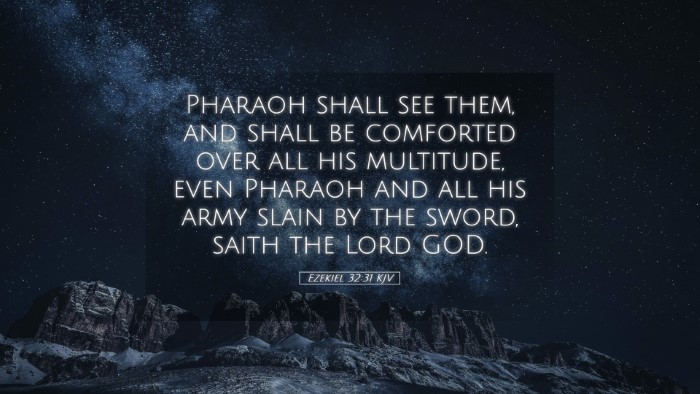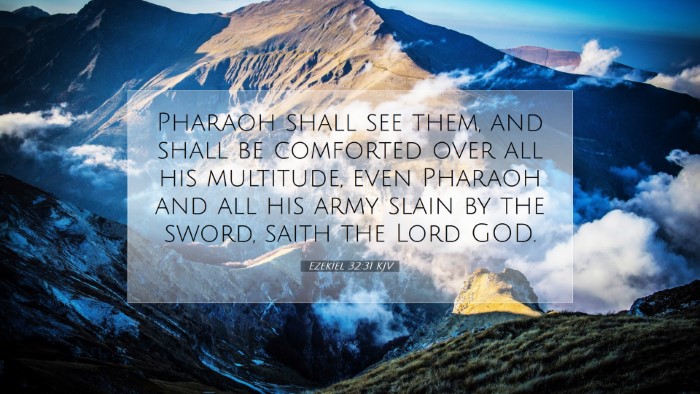Ezekiel 32:31 - Commentary and Insights
Verse: "Pharaoh shall see them, and shall be comforted over all his multitude, even Pharaoh and all his army slain by the sword, saith the Lord God."
Introduction
The verse Ezekiel 32:31 is a part of the broader narrative of judgment against Egypt, where the prophet Ezekiel delivers God’s messages regarding the fate of nations. This passage highlights the ultimate downfall of Pharaoh and emphasizes the theme of divine justice and retribution.
Theological Background
This verse occurs within a series of oracles against foreign nations, with a particular focus on Egypt. The historical context reflects the geopolitical realities of Ezekiel's time, wherein Egypt was a significant power in the ancient Near East. The commentary from Matthew Henry elaborates on how this judgment reflects God’s sovereignty over nations and His ability to raise and lower them according to His will.
Commentary Insights
Matthew Henry's Commentary
Henry points out that this verse serves as a profound revelation of God’s power over worldly rulers. The imagery of Pharaoh "seeing" the destruction depicts a moment of realization concerning his helplessness in the face of divine judgment. Henry emphasizes:
- The Illusion of Power: Pharaoh’s previous confidence and pride are contrasted with his ultimate fate, highlighting the transient nature of earthly power.
- Divine Comfort: The juxtaposition of comfort amidst such destruction indicates a stark irony; the comfort experienced by Pharaoh lies in recognizing the fulfillment of divine prophecy. It denotes a sobering truth: that even the mightiest will be brought low.
Albert Barnes' Notes
Barnes brings additional insights into the psychological aspect of Pharaoh witnessing his own doom. He posits that this contemplation serves as a reminder to rulers of the limits of their power:
- Despair in Delusion: The language suggests that Pharaoh, surrounded by his dead, will come to a harrowing understanding of the consequences of his arrogance. True comfort comes only from God, not from the delusions of grandeur.
- The Role of Prophecy: Barnes stresses that the prophetic nature of these declarations is intended to bolster the faith of Israel, affirming that God is not only sovereign over Israel but also over Egypt and all nations.
Adam Clarke's Commentary
Clarke's analysis delves deeper into the social and political ramifications of this verse:
- Social Implications: The comfort meant for Pharaoh hints at a larger social context where the destruction of a leader affects the morale of his people. Clarke points out that the acknowledgment of defeat affects the collective consciousness of Egypt.
- Historical Reflection: He writes of the historical fallacy in assuming invincibility, reflecting on past civilizations that faced similar judgments. Clarke notes that God's decrees stand irrespective of human strength.
Practical Applications
This verse, while recounting a historical and prophetic event, carries profound implications for contemporary readers, particularly pastors, students, and theologians. It serves as a rich source for reflection on divine justice, the nature of power, and the reality of mortality:
- Reflection on Leadership: The verse encourages leaders to humbly consider their own positions in light of divine sovereignty and accountability.
- Comfort in Judgment: It reminds us that God’s judgments can serve as comfort to those who have suffered under oppression, illustrating His ultimate control over all nations.
- Call to Repentance: The passage serves as a warning to avoid the pride that leads to destruction, echoing throughout the scriptures the necessity of repentance and humility before the Lord.
Conclusion
Ezekiel 32:31, though it speaks of the specific downfall of Pharaoh and the Egyptian army, invites a broader reflection on the nature of power, the certainty of divine judgment, and the comfort found in God’s sovereignty. As pastors, students, and theologians engage with this text, they are called to consider both its historical context and its enduring relevance in their own lives and communities.


